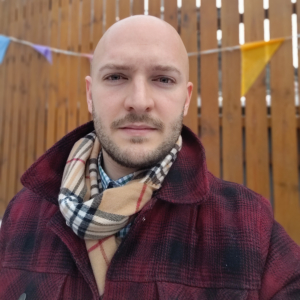Jaime Gallego Bellas, an FLSH contract teacher at UCL Lille, quickly developed an interest in social issues and the realities of declining territories. After graduating in Modern Letters in French and English at Madrid UCM, he continued his studies at Carlos III University, where he obtained a Master’s degree in Cultural Studies. Later, he completed his training with a Master’s degree in British Civilization at Sorbonne University, enriching his analysis of cultural and social dynamics in post-industrial contexts. His academic career has enabled him to combine theory and reality, particularly in the study of revitalization processes in territories undergoing change. He is currently conducting doctoral research at the University of Perpignan Via Domitia (UPVD), where he continues to explore the impact of the culture-heritage binomial on the revitalization of post-industrial regions.
Project Statement:
Culture and heritage in the revitalization of post-industrial regions: a comparative analysis of Greater Bilbao and the Lille conurbation
The research focuses on the impact of culture and heritage in the revitalization of post-industrial regions, comparing two European territories: Greater Bilbao in Spain and the Lille conurbation (MEL) in France. The main objective is to analyze the transformation processes of these industrialized areas since the 1990s, examining the cultural initiatives and heritage issues that have played a key role in their revitalization.
At the heart of the study is a comparative analysis of emblematic third places in these two regions. In Lille, the Condition publique in Roubaix and the Gare Saint Sauveur embody examples of the rehabilitation of former industrial sites, which have now become dynamic cultural spaces hosting artistic events, exhibitions and workshops. These venues are vectors for creative encounters and synergies, helping to redefine the region’s identity while retaining a strong connection with its industrial past.
On the other side of the Pyrenees, Bilbao has undergone a similar transformation, notably with the ZAWP (Zorrozaurre Art Work in Progress) project, a group of venues dedicated to culture, art and innovation installed on the island of Zorrozaurre, a former industrial area. The project embodies the city’s effort to reinvent itself through culture, while preserving its industrial heritage.
Through this study, the aim is to shed light on the different cultural narratives that have emerged from these changing spaces. The research highlights how these projects reuse industrial heritage to nurture new forms of creativity and sociability, while engaging in a dialogue between history, memory and innovation.





